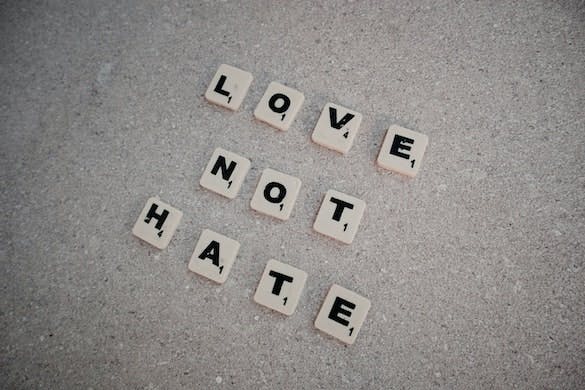The Cocktail Party Contrarian: Michigan Opens Door To Making Hate Speech a Crime
Yet the government has no business pretending to attempt to solve the problem of hostile speech by crushing constitutional rights.

The Michigan house of representatives last month passed a bill that amends the state’s definition of a “hate crime.” New language in the legislation suggests that “intimidation” of others, as defined by how the “victim” feels, will qualify as a felony offense. In other words, the door has been opened for “hate speech” to potentially now become a hate crime.
Of course, there is no such thing as “hate speech” but we have been groomed to believe there is. The catch-all category was manufactured to turn constitutionally protected hateful speech as well as speech that those in power would simply prefer to silence into a brand that could be strategically leveraged for more power.
It worked. It has grown from a campus boogeyman that birthed the equally imaginary category of “safe spaces” to a social weapon used to cancel Americans with disfavored views to a concept deemed worthy of legal standing. “Hate speech” v. “free speech” is here.
As a Jewish woman, I am particularly sensitive to the malice embedded in the Michigan bill, not least of all because it was introduced shortly after threats were made against an East Lansing synagogue. That such government overreach should be enacted, in part, in the name of protecting Jews doesn’t make me grateful.
As the no. 1 target of hate crimes in America, Jews know better than most that hateful language about the Jewish community is a real problem. Yet it is a problem that the government has no business pretending to attempt to solve by crushing the very constitutional rights that have allowed Jews to live freely in this country in ways their great-grandparents couldn’t have imagined possible.
Making “hate speech” a crime is dangerous for Jewish Americans, and any American not in charge of defining it. We have already seen antisemites leverage this charge to attack Jews who support Israel or who defy whatever the orthodoxy of the day is that requires authoritarian censorship. Once a society decides it is acceptable to make lists, Jews can be sure they will find themselves on them.
Not living in Michigan is no excuse not to worry. If “hate speech” becomes a legal category there, other states will follow.
Europe and Canada are already on board. The UN’s website acknowledges that “there is no universal definition of hate speech under international human rights law,” but is quick to add that it “is still under discussion, especially in relation to freedom of opinion and expression, non-discrimination and equality.” Jews who are familiar with the UN’s track record on Israel should be very curious to know exactly what “under discussion” means.
American Jews have a special responsibility to stop perpetuating use of the phrase “hate speech.” Our institutions are addicted to this language — it comports with their partisan political interests and with their fundraising campaigns in which they suggest they are pursuing “hate speech” to protect the community.
Yet they aren’t protecting us if they aren’t protecting the First Amendment. If we don’t lead on this issue, we will regret it — and likely be restricted from saying so by the very people we allowed to take our speech away.

